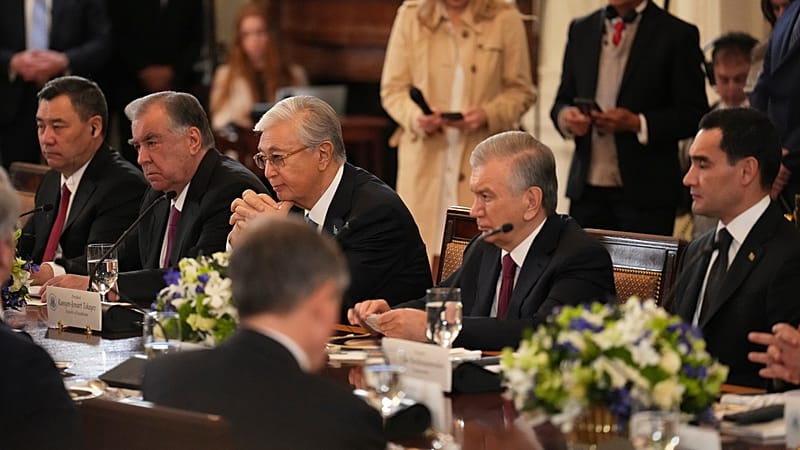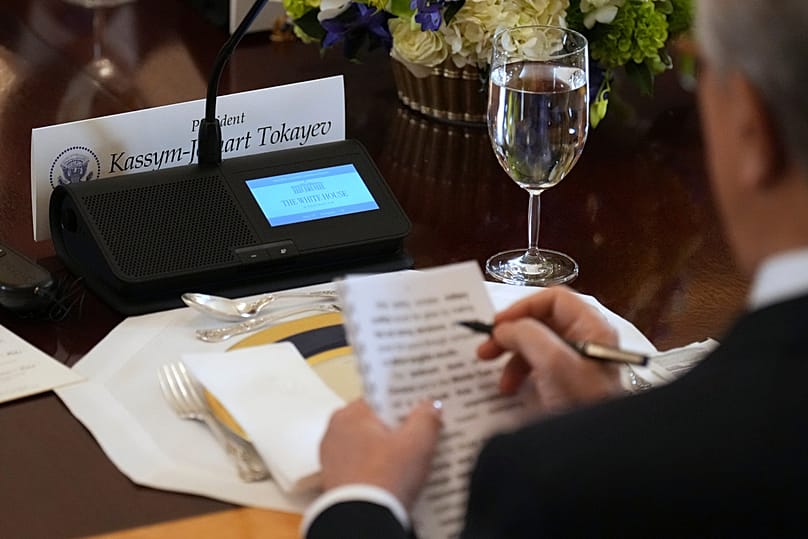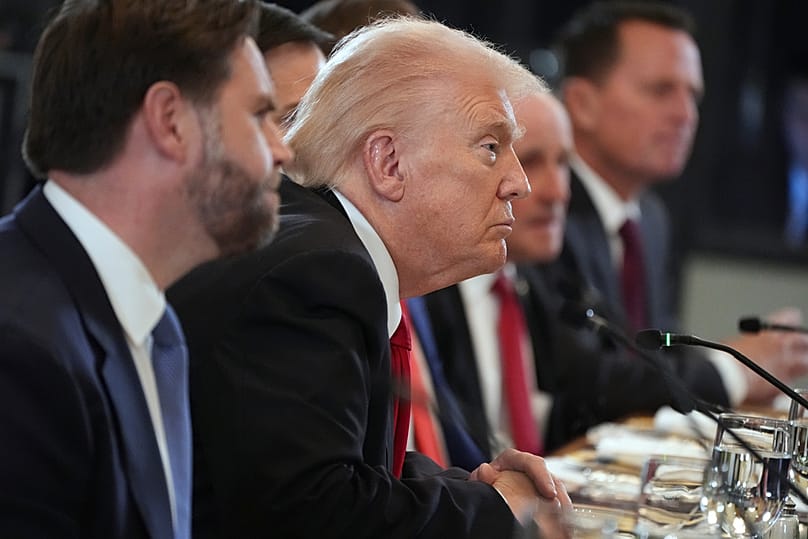Kazakhstan to join Abraham Accords as it signs critical minerals and trade deals with the US

Kazakhstan has officially pledged to join the Abraham Accords, a series of US-brokered agreements launched in 2020 to normalise diplomatic relations between Israel and Arab nations.
US President Donald Trump expanded the accords by securing President Kassym-Jomart Tokayev’s commitment to sign the agreement during a phone call attended by the two leaders and Israeli Prime Minister Benjamin Netanyahu.
The call was made from the Oval Office during a visit by Tokayev to Washington for the C5+1 summit, a gathering involving the leaders of Uzbekistan, Kazakhstan, Kyrgyzstan, Tajikistan, Turkmenistan and the United States. The US also finalised a $1.1 billion dollar deal granting an American firm rights to develop Kazakhstan’s critical minerals deposits.
At the C5+1 summit, Trump made the gesture by inviting Tokayev to join a phone call with Netanyahu to reaffirm Kazakhstan’s intent to join the initiative.
Speaking at the White House, Trump confirmed the diplomatic breakthrough: "I’m delighted to report that Kazakhstan has officially agreed. A tremendous country with a tremendous leader has officially joined the Abraham Accords."
Tokayev noted that the US President has “managed to achieve outstanding results that seemed unattainable to many, creating real prerequisites for establishing lasting peace in the Middle East.”
A pivotal diplomatic shift, according to experts
Experts say Kazakhstan’s decision marks a pivotal diplomatic shift as Central Asia continues to balance its ties with China and Russia. Miras Zhiyenbayev, Advisor to the Chairman for International Affairs at Maqsut Narikbayev University, commented on the move's significance.
"If we sign something, we create a special framework for a broader context; different countries around the world to join the initiative," Zhiyenbayev said. "Many news (will be) forthcoming after this historic call, but the real content of these accords for Kazakhstan will be realised very soon."
Kazakhstan’s president also expressed support for Trump's peace initiatives, and referenced the Trump Route for International Peace and Prosperity (TRIPP), an infrastructure corridor running through southern Armenia that connects mainland Azerbaijan with Nakhchivan. Tokayev hailed the project as a contribution to the further development of the Middle Corridor.
The Trans-Caspian International Transport Route, which links trade between China and Europe while bypassing Russia, will be connected to the TRIPP, thus aiming to boost trade and ease logistical bottlenecks.
The United States also signed a $1.1 billion agreement with Kazakhstan to develop the world’s largest untapped tungsten deposits, giving a US company a majority stake in the joint venture. Washington hailed the partnership as a significant step towards securing critical minerals. Kazakhstan already supplies a quarter of America’s uranium needs.
New agreements achieved worth tens of billions of dollars
Additionally, $17.2 billion in new agreements were signed between Kazakhstan and US companies across the sectors of mineral resources, digital technologies and aviation, which included Kazakhstan’s plans to purchase additional Boeing aircraft for its national fleet.
Jeff Erlich, Executive Director of the American Chamber of Commerce in Kazakhstan, noted the diverse nature of these investments: “There is growing American investment in, say, consumer goods or IT, other areas that grow with the economic growth and the demographics of the country. Historically, the giant deals have been in oil and gas.”
The US remains Kazakhstan’s largest investor, with cumulative investments of more than $100 billion, about 80% of all foreign investment in Central Asia. Bilateral trade has nearly doubled to $5 billion, with more than 600 American companies now operating in Kazakhstan.



